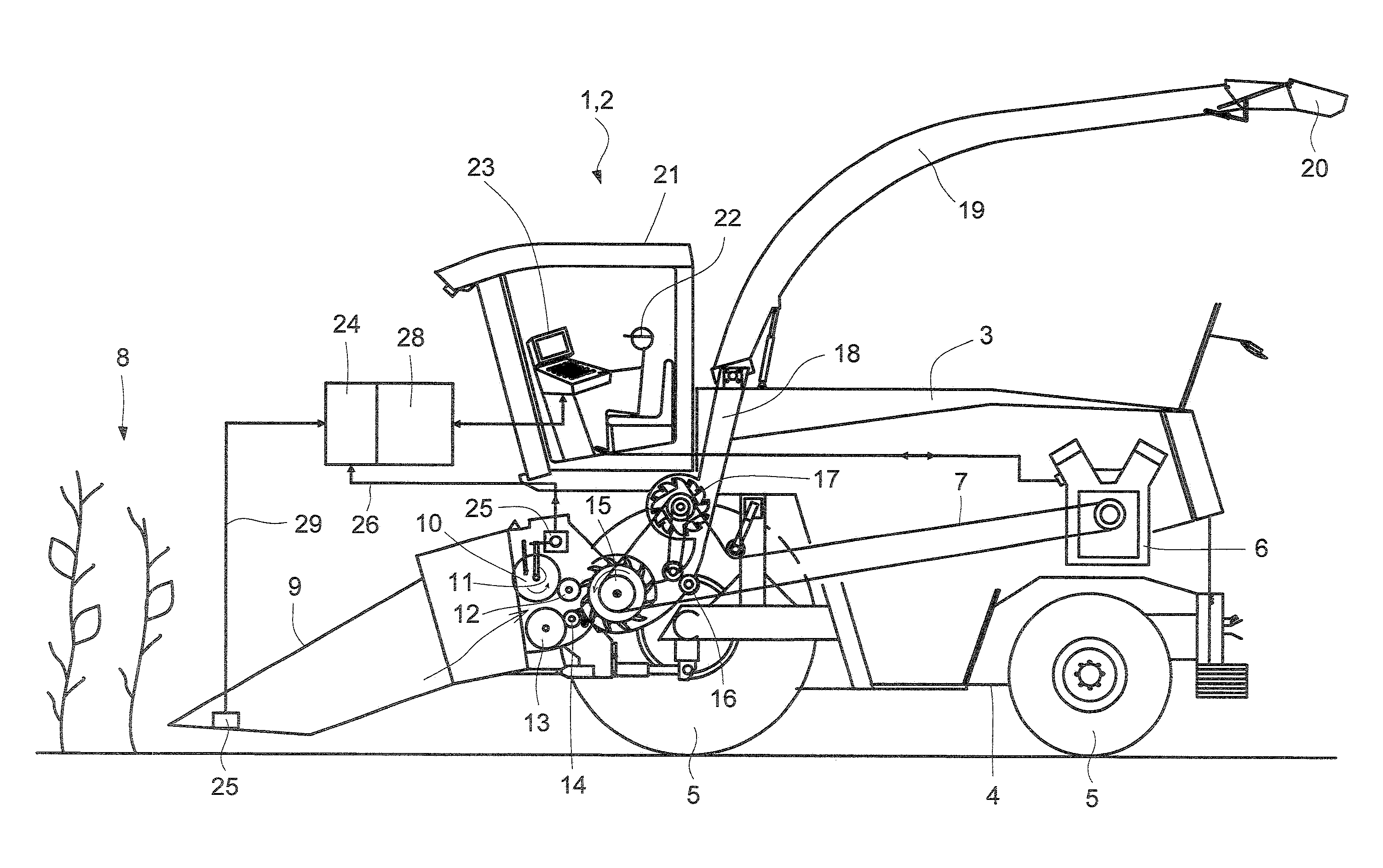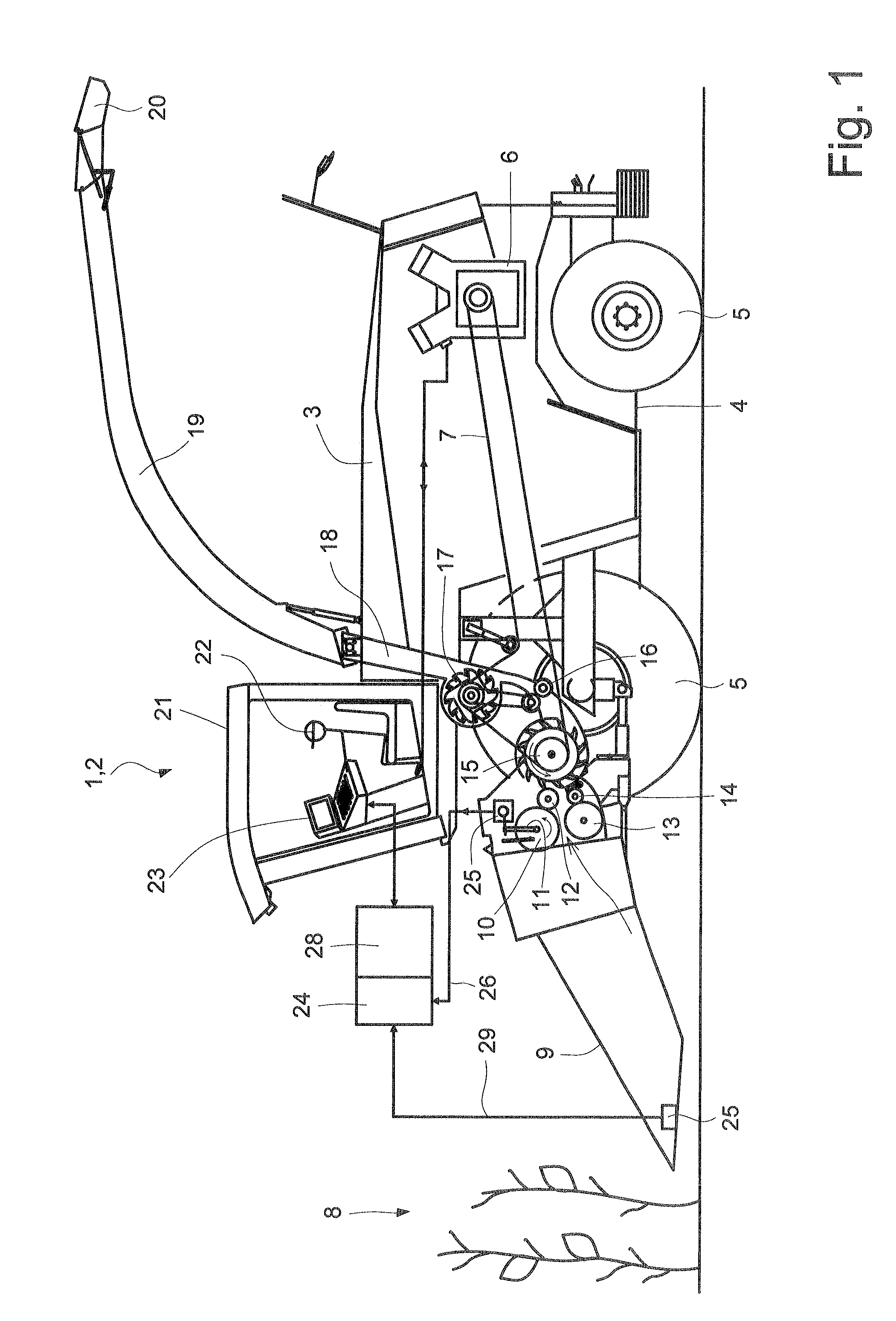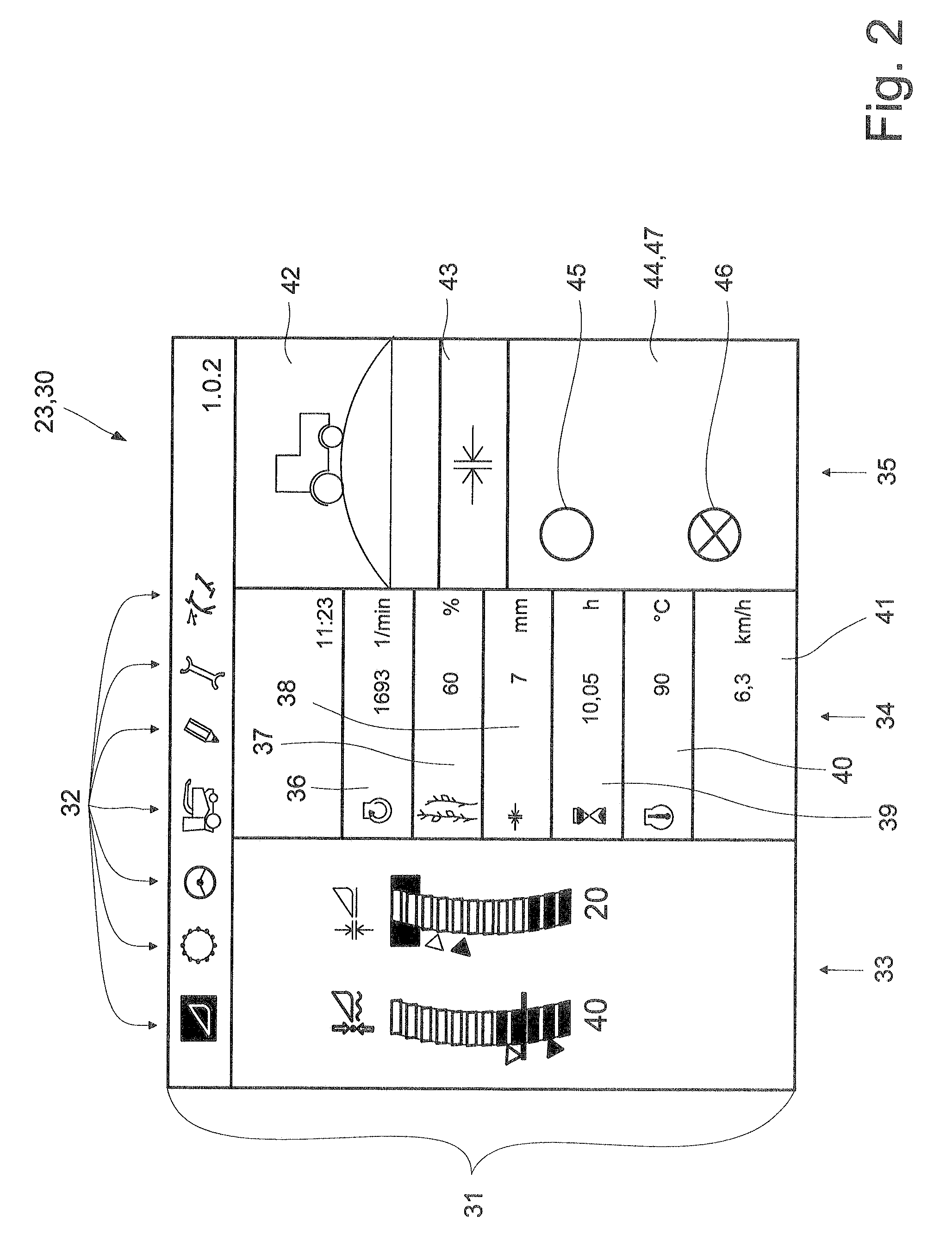Agricultural harvesting machine
a harvesting machine and agricultural technology, applied in the field of agricultural harvesting machines, can solve the problems of difficult estimation of whether even experienced operators are capable, ineffective prediction, and a large amount of time is required to optimize the operating parameters, and achieve the effect of reliable prognosis
- Summary
- Abstract
- Description
- Claims
- Application Information
AI Technical Summary
Benefits of technology
Problems solved by technology
Method used
Image
Examples
Embodiment Construction
[0020]Agricultural harvesting machine 2 which is designed as a forage harvester 1 and is shown in a partially exposed side view in FIG. 1, includes a housing 3 and a ground drive 4 on which wheels 5 are situated. An engine 6 is used as the drive, and is connected via a belt 7 to the working units of forage harvester 1.
[0021]Crop material 8 to be harvested is cut and picked up using a front attachment 9. Front attachment 9 is followed directly by intake device 10 which, in this embodiment, includes two lower intake and compression rollers 11, 12, and two upper intake and compression rollers 13, 14 which are situated on a frame or housing 3.
[0022]To ensure that a defined length of cut of crop material 8 is attained in the harvesting process, the feed speeds of forage harvester 1 are continually increased along the path of crop material 8 through harvesting machine 2. This means that intake and compression rollers 11, 12, 13, 14 are driven at a lower circumferential speed than is chopp...
PUM
 Login to View More
Login to View More Abstract
Description
Claims
Application Information
 Login to View More
Login to View More - R&D
- Intellectual Property
- Life Sciences
- Materials
- Tech Scout
- Unparalleled Data Quality
- Higher Quality Content
- 60% Fewer Hallucinations
Browse by: Latest US Patents, China's latest patents, Technical Efficacy Thesaurus, Application Domain, Technology Topic, Popular Technical Reports.
© 2025 PatSnap. All rights reserved.Legal|Privacy policy|Modern Slavery Act Transparency Statement|Sitemap|About US| Contact US: help@patsnap.com



